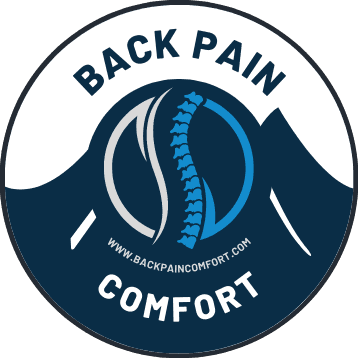
Dealing with back pain can be a constant struggle, but did you know that what you eat might significantly affect your symptoms? The right diet can help reduce inflammation, promote healing, and manage pain.
By incorporating specific foods into your daily meals, you can support your body’s natural ability to recover and improve your overall well-being. Here are 7 essential back pain diet tips to help you feel better and live pain-free.
1. Eat Anti-Inflammatory Foods
Inflammation is a common cause of back pain. Foods rich in omega-3 fatty acids, such as salmon, walnuts, and flaxseeds, can help reduce inflammation. Leafy greens, berries, and turmeric also have powerful anti-inflammatory properties. Incorporating these foods into your diet can help lower your back pain naturally.
2. Include Calcium-Rich Foods
Calcium is essential for bone health, and strong bones are crucial for supporting your back and spine. Dairy products like milk, cheese, and yogurt are excellent sources of calcium. If you’re lactose intolerant or vegan, opt for fortified plant-based milk, almonds, and leafy greens like kale and broccoli.
3. Boost Your Vitamin D Intake
Vitamin D helps your body absorb calcium more effectively, promoting stronger bones and reducing the risk of back pain. Sunlight is a natural source of vitamin D, but you can also get it from foods like fatty fish, eggs, and fortified cereals. Consider a vitamin D supplement if you’re not getting enough from your diet or sunlight exposure.

4. Stay Hydrated
Dehydration can lead to muscle cramps and stiffness, exacerbating back pain. Drinking plenty of water throughout the day helps keep your spinal discs hydrated and maintains their cushioning effect. Aim for at least 8 glasses of water daily to support overall spinal health and prevent discomfort.
5. Limit Sugary and Processed Foods
Sugary and processed foods can increase inflammation and contribute to weight gain, putting additional strain on your back muscles and spine. Limiting your intake of sodas, sweets, and fast foods can help reduce inflammation and prevent unnecessary stress on your back.
6. Eat Lean Proteins
Lean proteins like chicken, turkey, tofu, and legumes are essential for muscle repair and recovery. When you suffer from back pain, ensuring your muscles have the nutrients they need to heal is important. Including a source of lean protein in each meal can support your body’s healing process.
7. Avoid Excessive Caffeine
While a glass of wine or a cup of coffee can be enjoyable, excessive caffeine intake can dehydrate the body and lead to inflammation. Moderation is key. Try to limit your caffeine consumption to reduce the risk of exacerbating your back pain.
Making small, consistent changes to your diet can have a significant impact on managing back pain. By focusing on anti-inflammatory foods, staying hydrated, and avoiding dietary triggers, you can support your back’s health and overall well-being. Remember, diet is just one piece of the puzzle; combining these tips with regular exercise and proper posture can help you manage back pain more effectively.






